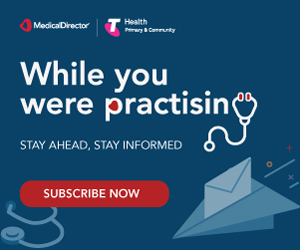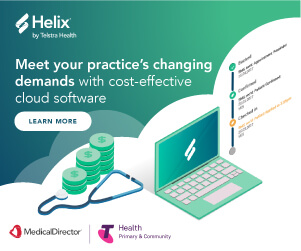How embracing Dr. Google can lead to better patient health literacy
The role of the patient as we know it has transformed. With the emergence of the web and the rise of a plethora of web-based technologies over two decades, patients now have access to more information than ever before.
Gone are the days where a patient would solely seek out a healthcare professional’s opinion about a health issue. While this may be frustrating for some, increasingly healthcare professionals are leaning into this change.
The role of Dr. Google, social media and online forums continues to grow
For many patients, search engines such as Google (often referred to as Dr. Google) are now the first port of call when it comes to personal health challenges. Many seek out and study information in an effort to self-diagnose.
The role of social media platforms such as Facebook, YouTube and Instagram as well as online forums is also rapidly growing in the lives of patients. The information and advice patients get from friends, family or even complete strangers about health issues and health providers is helping them feel a deeper sense of control.
But while search engines and social media platforms are trying to take more responsibility for information posted on their digital platforms, ensuring the integrity of such vast amounts of information can be difficult.
Healthcare professionals are leaning into this change
As patients increasingly rely on Dr. Google and its internet counterparts, the response of healthcare professionals is shifting.
Dr. Charlotte Middleton, General Practitioner and Chief Medical Officer at MedicalDirector believes that providing the right information to patients is key.
“It’s about empowering our patients to take the lead in their own healthcare. So many of our patients head to Dr. Google to try to get their information, so it’s about giving them the right resources to enable that”, she says.
Technology has empowered patients to take control of their own healthcare, and their appetite for this will increase as we tread forward into the future.
The key to managing patient concerns exacerbated by Dr. Google, social platforms or even private online forums will be to reframe them as a gateway into fresh, new conversations.
Embracing the new patient journey can lead to better health literacy
By embracing this shift in the patient journey, and digging deep into a patient’s concerns, healthcare professionals have the opportunity to work with patients to improve their health literacy.
To get going, start with top-level, broad and open-ended questions, such as —
- Have you done any research on your symptoms or condition, prior to seeing me today?
- Where did you get your information from?
- Have you tried any treatments for this, at home?
- Do you have any questions, that you would like me to help answer?
From here, look for opportunities to ‘drill down’. Determine what patients do and don’t know, then inform them of what is true and what isn’t. Position yourself to carefully and gently refute or debunk false and unhelpful information. And where it’s helpful, redirect patients to more reliable online resources to improve their overall health literacy.
The role of healthcare professionals hasn’t changed
The role of healthcare professionals in serving and supporting patients and the wider community, hasn’t changed. The trend of patients becoming increasingly proactive in the management of their own health is here to stay. By embracing this shift in the patient journey, we have an opportunity as healthcare professionals to play a more consultative role — improving patient relationships, health literacy, and ultimately health outcomes.









